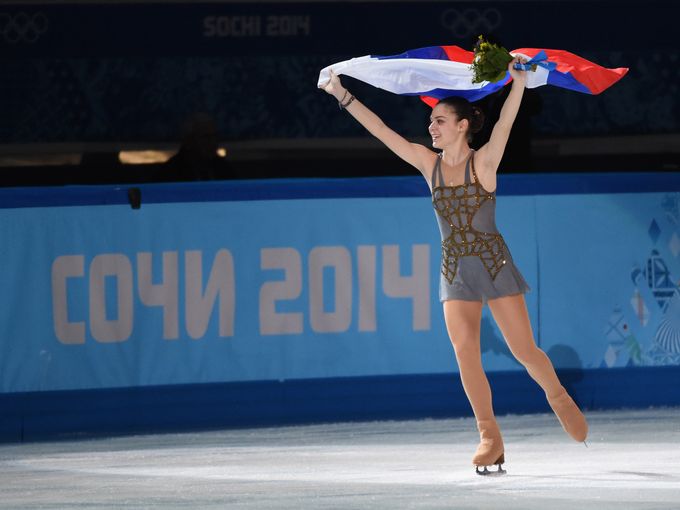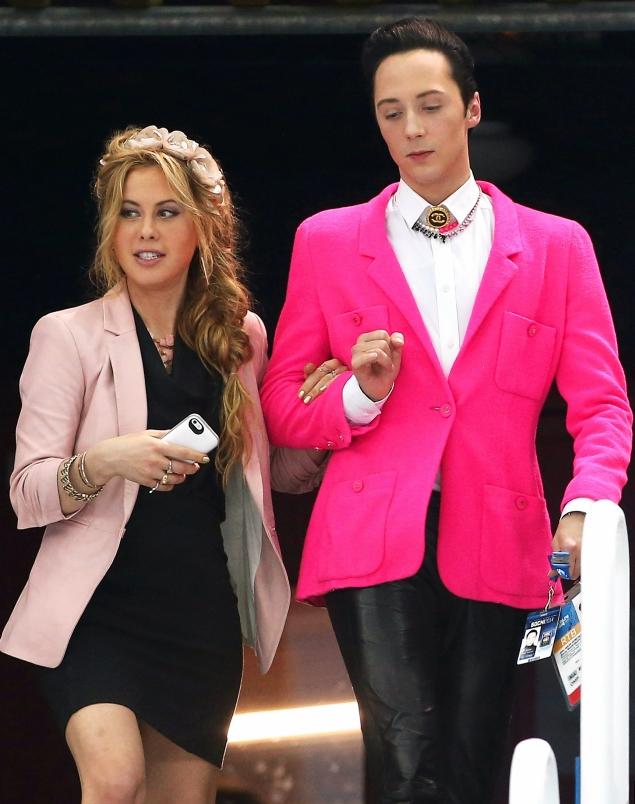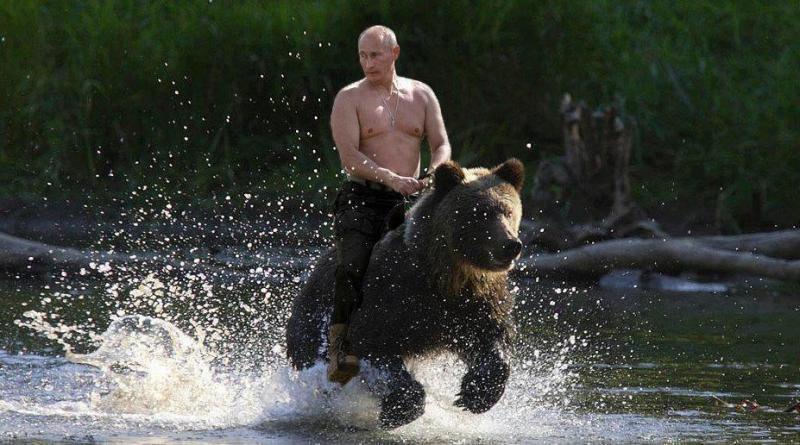Johnny Weir, Vladimir Putin, and the Sexual Politics of the Sochi Olympics
Hollis Griffin / Denison University

I’m an unrepentant, unapologetic figure skating fan. This fandom began during the 1988 Winter Olympics that took place in Calgary, when American television networks spent a great deal of time and energy pitting the scrappy athleticism of the U.S.’s Debi Thomas against the theatrical beauty of East Germany’s Katarina Witt. With racial overtones layered on top—Thomas is African-American while Witt is rather Aryan—the women’s figure skating competition played out a decades-long East/West rivalry in the waning days of the Cold War. Witt won and became a household name, I was crushed for Thomas but became a fan of figure skating for life, and the Iron Curtain fell just a few years later. The effect of this last event on the world of figure skating was rather profound. After decades of Soviet domination, figure skating witnessed the dismantling of the USSR’s overwhelmingly successful state-funded skating “machine.” Amidst Russia’s political upheavals and economic instability in the 1990s, former Soviet coaches relocated for more pay while their athletes suffered amidst vast decreases in governmental financing. In the time since, the Russian nation-state has battled governmental volatility and financial precarity, a scenario that precipitated the waxing and waning of its figure skaters’ fortunes on the Olympic stage even more. Yet press discourses constructed the 2014 Olympics in Sochi as Russia’s attempt to both re-assert its status as a global superpower and re-claim its title as the figure skating powerhouse.
As the Games began, news reports about state-sponsored gay violence in Russia threw a rather profound damper on what had promised to be my best television watching since the Vancouver Olympics in 2010. I thought about boycotting the Sochi Games, but the promise of sequins and feathers and jumps and spins was too much. I’m a gay man, after all. I followed with great interest as retired, openly gay figure skater Johnny Weir worked as a commentator for NBC Sports. As flamboyant as he is bitchy, Weir won raves for the articulate, intelligent commentary he provided with 1998 Olympic Figure Skating Champion Tara Lipinski. The pair posted photos of their coordinated outfits to Instagram and offered their thoughts and opinions on the Sochi competition in comical, intuitive ways. In and around the Olympic Village, Weir preened like a gay peacock, appearing here and there in pink blazers and hair accoutrements. Set against the backdrop of recent events in Russia—where the government recently banned “propaganda of non-traditional sexual relations” and queer people have been subjected to new regimes of surveillance, scrutiny, and violence—Weir’s presence might be read as a profound rejoinder to the nation’s increasingly institutionalized homophobia. Of course, Weir himself denies such activist intentions, and pointedly distances himself from criticism of Russia’s current regime. But on Facebook and Twitter, many Americans articulated how proud they were of Weir. Many people, especially gay people, felt as though he was “giving the finger” to a Russian government that has been so violent and hostile to the country’s queer publics.

Such feelings about Weir’s commentary and Russia’s anti-queer climate revive longstanding American narratives about Russian politics and culture. These narratives create a binary relation between notions of American liberation and ideas about Russian repression. It’s important to emphasize here: not every American loved Weir’s performance in Sochi. Yet this mode of understanding Weir’s queerness vis-à-vis Russian sexual politics—where Americans allegedly embrace him as Russians supposedly disdain him—has been a trenchant one. This discourse generates feelings of what Jasbir Puar would call “homonationalism,” which she defines as “a historical shift marked by the entrance of (some) homosexual bodies as worthy of protection by nation-states, a constitutive and fundamental reorientation of the relationship between the state, capitalism, and sexuality.”1 Homonationalism necessitates the expulsion of other sexualities: monstrous, often foreign sexualities that get framed as being perverse against a set of sexual norms deemed as being quintessentially American. Puar calls this “U.S. Sexual Exceptionalism,” the process by which the American nation-state articulates its excellence and transcendence by way of sexual othering.2
Bound up in discourse on Russia’s human rights violations and Johnny Weir’s queer performances are many different constructions of Russian dysfunction and decline. For instance, Russian President Vladimir Putin’s sexuality is often conveyed via a “tough guy” image. The many press-friendly photo shoots staged for Russian media outlets feature Putin bare-chested while he hunts and fishes. These shots have gotten lampooned on the American internet in a series of memes, where Putin’s hypermasculinity gets recoded for its comedic, queer excess. User-generated imagery co-opts the photos to paint him as a queer-ish action-movie hero, a Cold War-era badass with a twist. But the memes also depict Putin as a macho asshole in charge of an inept government in a corrupt country. Such constructions dovetail with many other American narratives about an allegedly maladjusted Russian sexuality. For instance, American imaginings of Russian female sexuality involves a double movement of hypereroticized femininity and failed womanhood. Pornography starlets from Russia feature prominently in U.S. adult entertainment, gesturing to the ways in which American fascinations with the country frequently involve an explicit fetishization. In contrast, Americans also paint Russian women as being hideously asexual—devoid of womanly curves, dressed in outdated fashions, missing the benefits of Western dentistry. Thus, American imaginings of Russian sexualities involve both a covetous desire and a repulsed dismissal. In this way, American understandings of Russia’s queer politics and the American press’ framing of Johnny Weir’s figure skating commentary in Sochi are bound to much larger frameworks of sexualized scorn and derision.

Americans also frequently picture Russia as having failed at modernity. The U.S.’s cultural imaginary has long painted Russia as being prehistoric and backward. American culture is rife with mentions and imagery of “the Russian mafia,” as well as arcane, brutal pictures and stories about Russian customs and cultural practices. During the Sochi Olympics, Twitter was abuzz with the hashtags #SochiProblems and #SochiFail. Here, non-Russian Olympic attendees shared pictures of assorted organizational gaffes and culturally-specific practices that are guilty of little more than “looking weird” to foreigners. Thus, in American culture, Russia often gets depicted as “The Land That Time Forgot.” This imagining of Russia as being both behind and in decline requires a corresponding image of the U.S. as righteous and progressive, forward-thinking and inclusive, modern and cutting-edge. Such a binary is easily dispelled when one points out how Johnny Weir’s multi-colored blazers would be grounds for anti-gay violence according to many, many Americans.
Seventeen-year-old Russian figure skater Adelina Sotnikova won the women’s figure skating championship in an upset, dethroning the 2010 winner, South Korea’s Yu-Na Kim. Following her victory, television and internet commentary featured much debate over whether or not Russian authorities had rigged the judging. I’ll freely admit that I wasn’t terribly wowed by Sotnikova, but I’m willing to concede that the esoteric scoring system used in figure skating competitions these days isn’t as television-friendly as the system used to crown Katarina Witt in 1988. Even so, I think it’s interesting how the most recent Olympics, especially the figure skating competitions, became a breeding ground for all kinds of narratives related to nationalism and sexuality. These narratives often took shape in veiled ways, though, occurring by way of a fixation with a shirtless Vladimir Putin and cellphone pictures of tandem toilets in the Sochi Olympic Village. Discourse on the Sochi Olympics was thus bound up in discourses on current Russian sexual politics, generating a whole series of ideas that relate to myths of American sexual liberation and short-sighted feelings of nationalist pride. These formulations occur via things like Johnny Weir’s fashion sense and American stereotypes about Russian mail-order brides. Such conceptualizations are not at all new, of course. In fact, they often seemed to do little more than revive old Cold War anxieties about Russian aggression and its sexual menace. That the Olympics and figure skating so often provide a stage on which these controversies play out is interesting in and of itself. The sports’ sequins and spins offer a rather poignant venue for the communication of nationalist anxieties and sexual fascinations.

Image Credits:
1. Ladies Figure Skating at Sochi
2. Johnny Weir at the 2014 Olympics
3. Vladimir Putin Rides a Bear
4. Twin Toilets: A Paradigm of the #SochiFail
Please feel free to comment.
I found this article to hit particularly close to home, as I grew up in a Russian family. Many of the stereotypes that are expressed in this article regarding the de-evolution of Russian culture or the portrayal of Russian archetypes as being “violent” and “not contemporary” with the times in a post-Soviet era are many which I have experienced myself; watching the countless portrayals of Russian bad guys in films and hearing stories from my parents of how their old neighborhoods are still made of the same war-torn, poverty-stricken homes in which they grew up, where Communism, Anti-Semitism and conformity were very much the norm, and could very well continue to be ever-present in Russia today. I found this article to be less about a commentary on the “queerness” of the Olympics in Sochi and more about the proliferation of cultural differences and stereotypes between the United States and Russia, which I did find problematic for reasons that, as Griffin states “seemed to do little more than revive old Cold War anxieties about Russian aggression and its sexual menace”.
I do have to admit that I tuned into NBC Sports while watching the Olympics and I witnessed a lot of discussion about and interviewing of Weir regarding how he was handling being openly gay and dressing so flamboyantly in a country where it was generally frowned upon. He jokingly shared stories about how he would walk into the men’s restroom and that most of the men entering the restroom, upon seeing him, would walk out of the restroom and check the signs to make sure that they were not in the women’s restroom, and of course what I find even more ironic in this discussion of Russia’s anti-homosexuality is the display of Putin as a macho gay, sexualized symbol despite his rigid holds on the sexual discourses of the nation (I have to admit, my brother has sent me a slew of Putin texts in the recent weeks following the Olympics in which Putin has been mocked, and his (homo)sexuality has been the topic of almost all of the images).
On a side note, one particular section of this article interested me; where Griffin writes: “This discourse generates feelings of what Jasbir Puar would call “homonationalism,” which she defines as “a historical shift marked by the entrance of (some) homosexual bodies as worthy of protection by nation-states, a constitutive and fundamental reorientation of the relationship between the state, capitalism, and sexuality.” It is interesting how here, homosexuality takes on a nomadic, shifting role, whereby it becomes secured by its existence in a place, considered progressively accepted in The United States and negated in other places like Russia.
Although I feel that applying these sexual politics to Russia as a whole may be a generalization, and that I do feel there are other ways in which homosexuality has become reinvigorated and positively upheld in the state by members who have looked to challenge the “general” rulings against homosexuality (ie. Pussy Riot’s performances).
Overall, I believe looking at these cultural differences between The United States and Russia in the context of the Olympics, especially with one of the announcers being an openly gay American figure skating icon was a unique take on addressing the current cultural issues on homosexuality that have been taking place in Russia. I can only hope that in these regards, Russia can become more progressive and accepting of others that fall outside of their valued hetero cultural ideals.
I agree with Victoria that the most interesting notion in this article surrounds “Homonationalism”. This article uses Jasbir Puar’s definition of homonationalism, defined as “a historical shift marked by the entrance of (some) homosexual bodies as worthy of protection by nation-states, a constitutive and fundamental reorientation of the relationship between the state, capitalism, and sexuality.” I believe that NBC has taken a noble stance by placing Johnny Weir in the limelight and has presented the best of the United States. However, this does not represent the entirety of the United States. Those who claim the US is an example of homonationalism are setting an incredibly low bar given the battles that the LGBT community is still fighting in America. As Hollis Griffin acknowledges in his article, “discourse on the Sochi Olympics was thus bound up in discourses on current Russian sexual politics, generating a whole series of ideas that relate to myths of American sexual liberation….” Just 9 days ago, the LA Times ran a story about the challenges being faced by gay seniors looking for affordable housing and how they were often discriminated against and forced back in the closet (1).
I believe the mistake that is often made is to believe that images on television represent the true state of affairs in the country producing those images. Media has done a great deal to help normalize groups that were once living on the periphery of our society, but that normalization can lag decades behind the vanguards represented on television. For example, marriage equality questions are one of the strongest indicators of how accepting a society is of certain groups. One of the first interracial couples portrayed on television was Tom and Helen Willis of “The Jeffersons” in 1975. But in 1972, Gallup (one of the most respecting polling organizations in country) found that 60% of Americans disapproved of interracial marriage (2). That number only dropped to 54% by 1978 (2), three years after the show was on air. Interracial marriage on TV did NOT equal a national acceptance, not to mention a national protection, of interracial marriage. In fact, in 1998, Alabama legislators failed to lift the state’s ban on interracial marriages (3). Though the ban was voted on several times, it would not be lifted until November 2000(4).
The same is true of gay marriage. In 2013, Gallup showed that only 54% of Americans believe that same-sex marriages should be equal to traditional marriages (2). Furthermore, only 17 states legally recognize gay marriage. While many jurisdictions have legalized same-sex civil marriage through court rulings, legislative action, and popular vote, four states prohibit same-sex civil marriage by statute and 29 prohibit it in their constitutions (5). So to tout Johnny Weir on NBC as indication of homonationalism is a far reach.
The comparison of LGBT rights in the US to LGBT rights in Russia is dangerous because when we hold ourselves in such high regard, we risk forgetting how much work is still to be done. Many tyrannical regimes from Stalin to President Juvénal Habyarimana of Rwanda have often made a disturbing argument within their own countries; they turn the microscope back on the US and ask how a country that has a history of slavery criticize any other country about civil liberties. In essence, they use slavery as a benchmark by which to gauge their own behavior. I believe these arguments are insane and full of holes. It would be a shame for the US to fall into a similar trap. The United States may be more progressive than others, but fully realizing the principles of homonationalism are still far from our reality.
Work Cited
1 – Hailey Branson-Potts “Affordable housing scarce for gay seniors”. Los Angeles
Times, Los Angeles, CA 19 April 2014
2 – “Marriage”. Gallup. 27 April 2014.
(http://www.gallup.com/poll/117328/marriage.aspx)
3 – “Alabama considers lifting interracial marriage ban”. CNN.com. 12 March 1999.
(http://www.cnn.com/US/9903/12/......marriage/)
Work Cited
3 – “Alabama considers lifting interracial marriage ban”. CNN.com. 12 March 1999.
(http://www.cnn.com/US/9903/12/......marriage/)
4 – “Alabama removes ban on interracial marriage”. USA Today, November 7, 2000. (http://www.usatoday.com/news/v.....main03.htm)
5 – “New Development: Federal Judge Rules Michigan Same-Sex Marriage Ban
Unconstitutional”. National Conference of State Legislatures. 26 March 2014.
(http://www.ncsl.org/research/h.....iew.aspx#1)